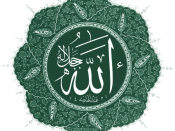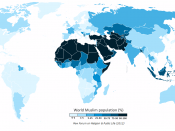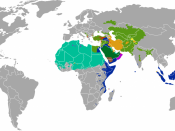As a universal monotheistic religion, Islam has given rise to a multitude of ideas, forces, and conditions over its long history. The Islamic tradition, with the Qur'an and the Hadith (collections of the sayings and practices of the Prophet of Islam) at its intellectual core, faced a major challenge with the onslaught of European modernity in a great number of Muslim countries. Modernity, an objective historical, social, and cultural movement, emerged mainly in Europe in the post-Industrial Revolution era and sought to stamp the modern age with a new, rational, and dynamic outlook and ideology. When its influence came to the Islamic world, its world view strongly affected those of Muslim thinkers.
Modernism believed that the human mind had an infinite capacity to transform and control social and natural phenomena, and that man was endowed with reason, self-consciousness, and a sense of individualism, progress, freedom, and the power to make history.
European modernity held that metaphysics are the science of the absurd, and that only pragmatism and relativism could salvage the human mind. These ideas challenge the theistic (Islamic) mind at its foundation, with its belief in God and human limitations, and constitute one of the most fundamental differences between the modem European world view and the Islamic one. (Pollock 40)From its inception, modernity espoused a rationalist attitude, reflected in the isolation of its early thinkers. According to the almost universal view of intellectual historians, early modernists were troubled, lonely, and anxious human beings--whether it was Hegel, who first developed a clear concept of modernity, or Rousseau, the archetypal modem voice in the early phase of modernity, or Luther, its greatest anxiety-ridden religious personality. Just like the early nationalists in the colonized Third World in the nineteenth century, early modernists sought a total break with their inherited intellectual and...


